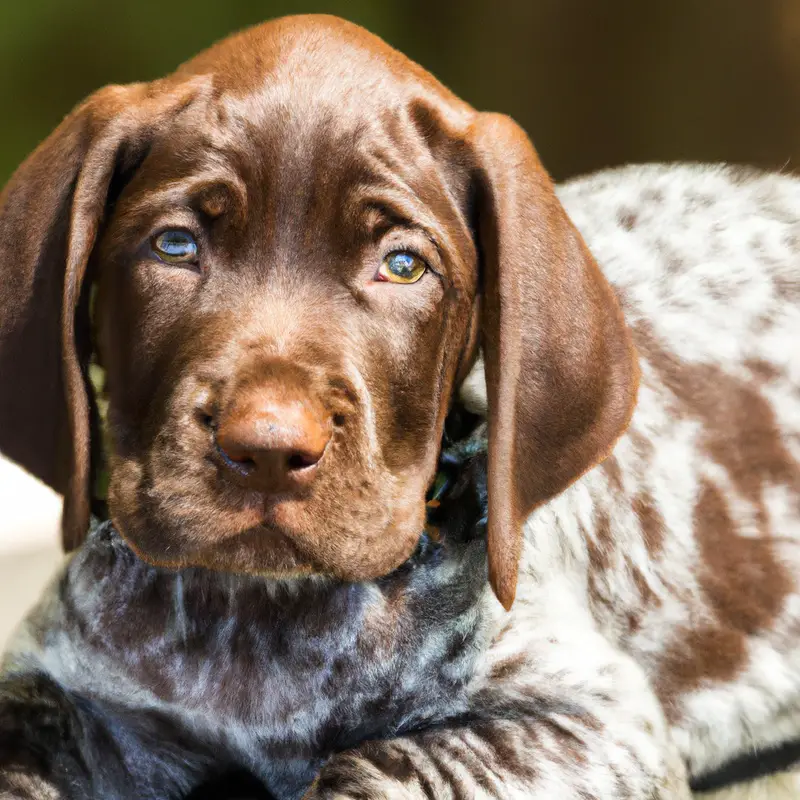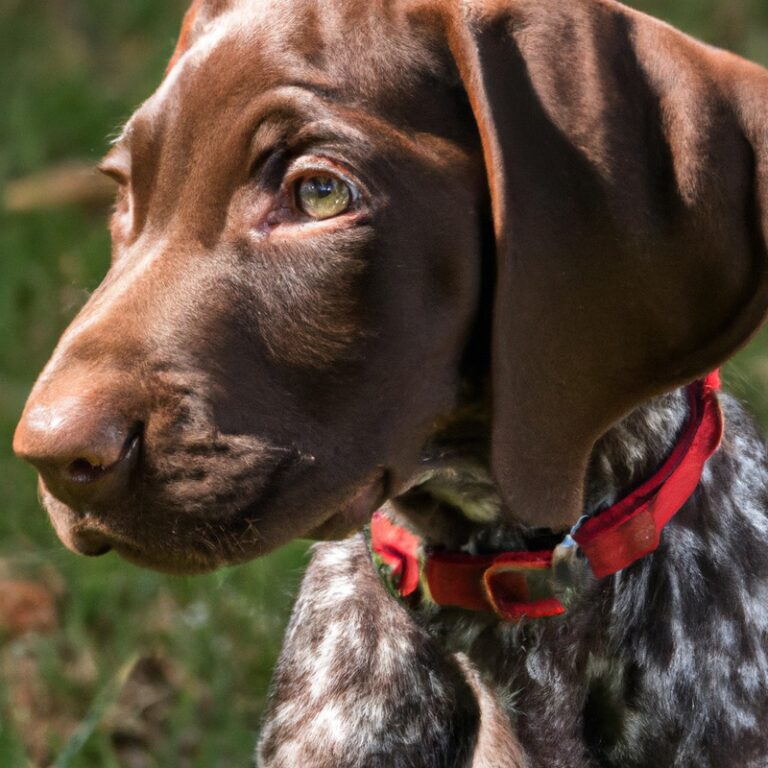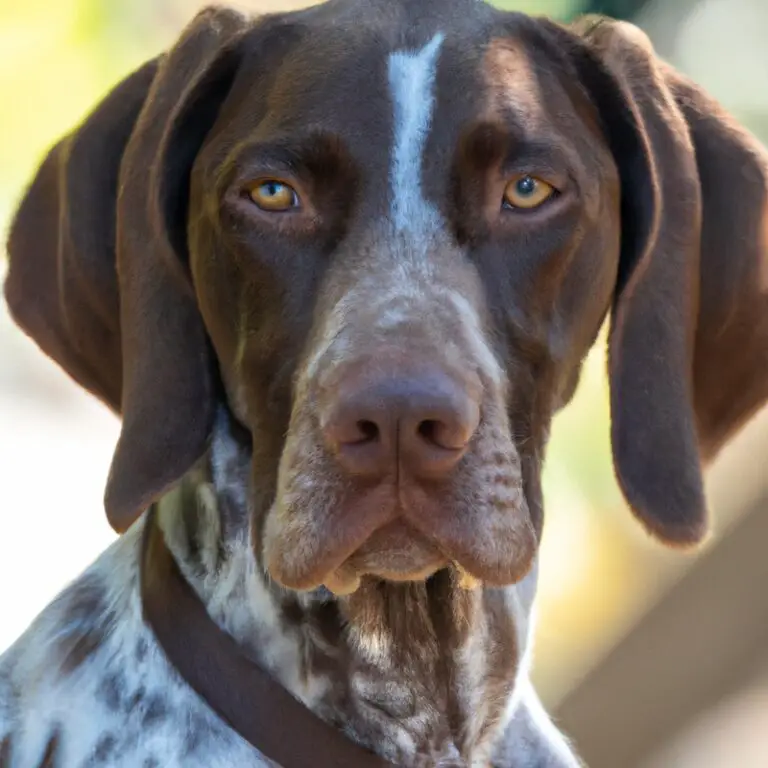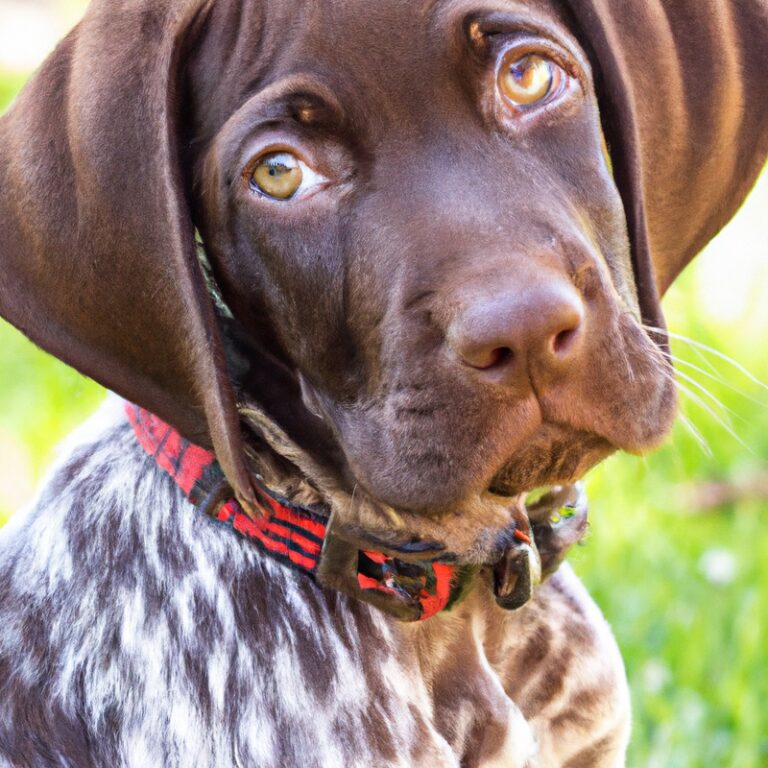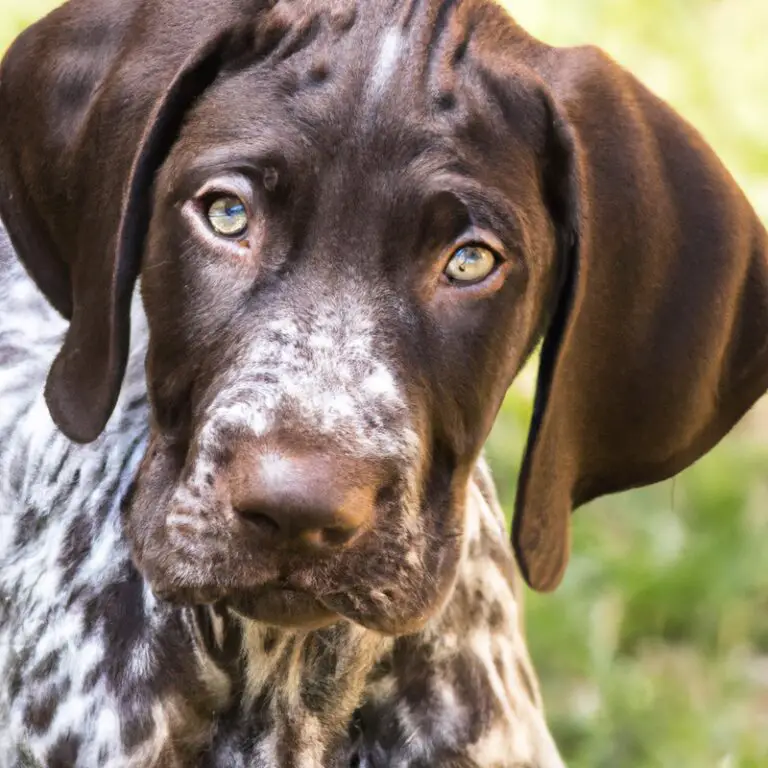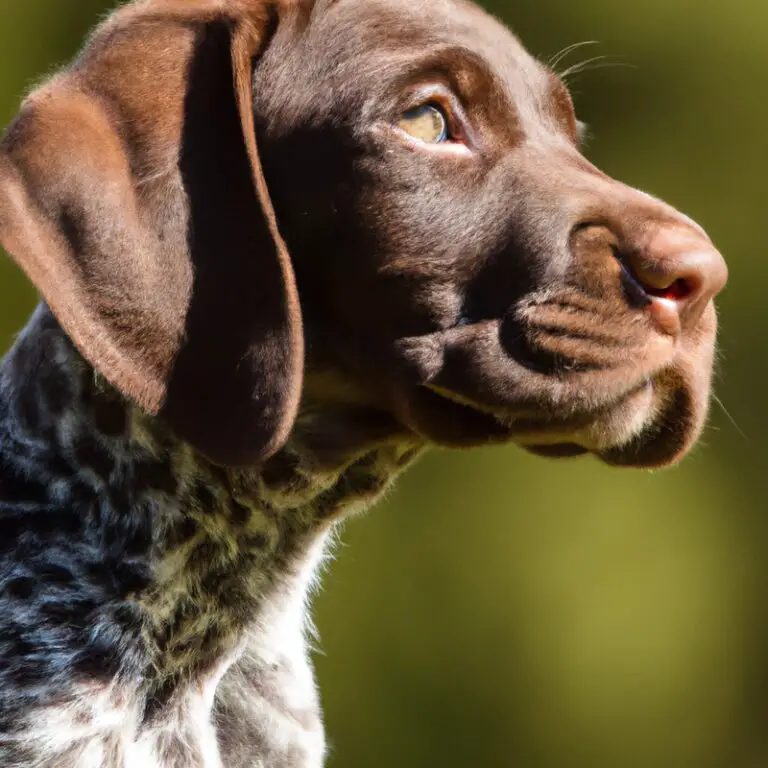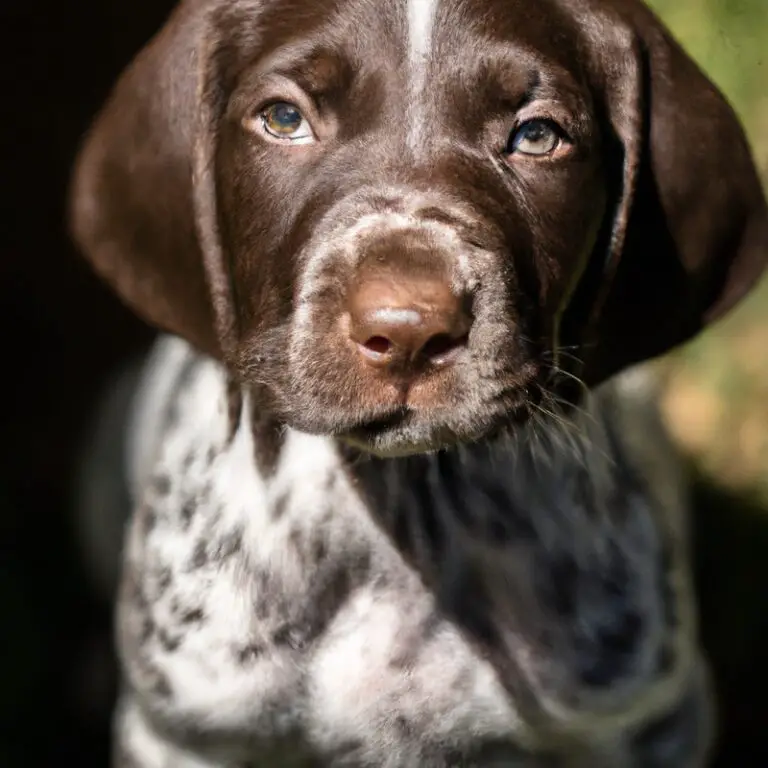How Can I Keep My German Shorthaired Pointer’s Ears Dry And Prevent Infections During Swimming?
Key Takeaways:
- Regularly clean and dry your German Shorthaired Pointer’s ears after swimming to prevent infections.
- Use a headband or ear protectors specifically designed for dogs to keep water out of their ears while swimming.
- Avoid excessive swimming in dirty or polluted water to reduce the risk of ear infections.
- Consult a veterinarian if you notice any signs of ear infection, such as excessive scratching or discharge, for proper diagnosis and treatment.
Are you a proud owner of a German Shorthaired Pointer who loves taking a dip in the water? Well, as much as these energetic and water-loving dogs enjoy swimming, it’s crucial to keep their ears dry to prevent infections.
You might be wondering, why is it so important?
To understand that, let’s delve into the anatomy of a German Shorthaired Pointer’s ears and explore the risks associated with allowing water to enter their ears. Don’t worry, I’ve got you covered with practical steps to ensure your furry friend’s ears stay dry and healthy during swimming adventures.
So, let’s dive in!
| Methods to Keep German Shorthaired Pointer’s Ears Dry & Prevent Infections During Swimming | |
| Method | Description |
| 1. | Ear Drying Solution |
| 2. | Ear Cleaning After Swimming |
| 3. | Ear Protection |
| 4. | Checking for Signs of Infection |
Why it’s important to keep your German Shorthaired Pointer’s ears dry during swimming
Understanding the anatomy of a German Shorthaired Pointer’s ears
Understanding the anatomy of a German Shorthaired Pointer’s ears is important if you want to keep them healthy and prevent infections. German Shorthaired Pointers have long, floppy ears that can trap moisture and bacteria, making them prone to infections.
Their ear canals are also deep and narrow, which can make cleaning and drying them a challenge.
Additionally, the breed’s active nature and love for swimming can further increase the risk of ear problems. By knowing their ear anatomy, you can take necessary precautions to keep their ears dry and maintain their overall ear health.
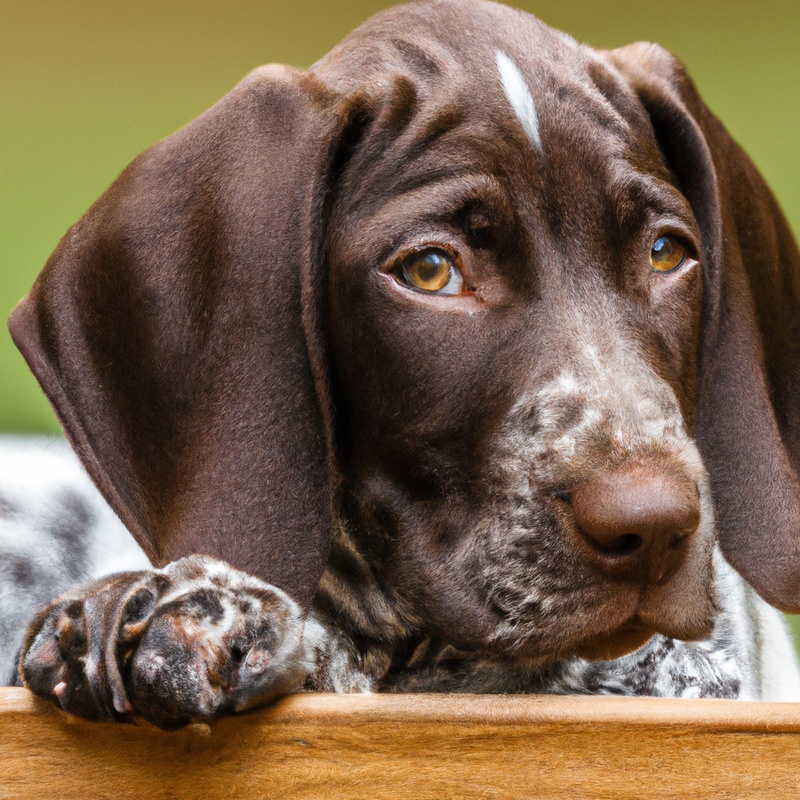
The risks of allowing water to enter a German Shorthaired Pointer’s ears
Allowing water to enter a German Shorthaired Pointer’s ears can pose risks and lead to various problems. The most immediate concern is the increased likelihood of ear infections.
Moisture in the ears creates a favorable environment for bacteria, yeast, and other microorganisms to thrive, leading to painful and uncomfortable infections.
Additionally, excessive moisture can cause irritation and inflammation in the ear canal, making your furry friend quite uncomfortable. It’s essential to keep your German Shorthaired Pointer’s ears dry to prevent these potential risks and ensure their overall ear health.
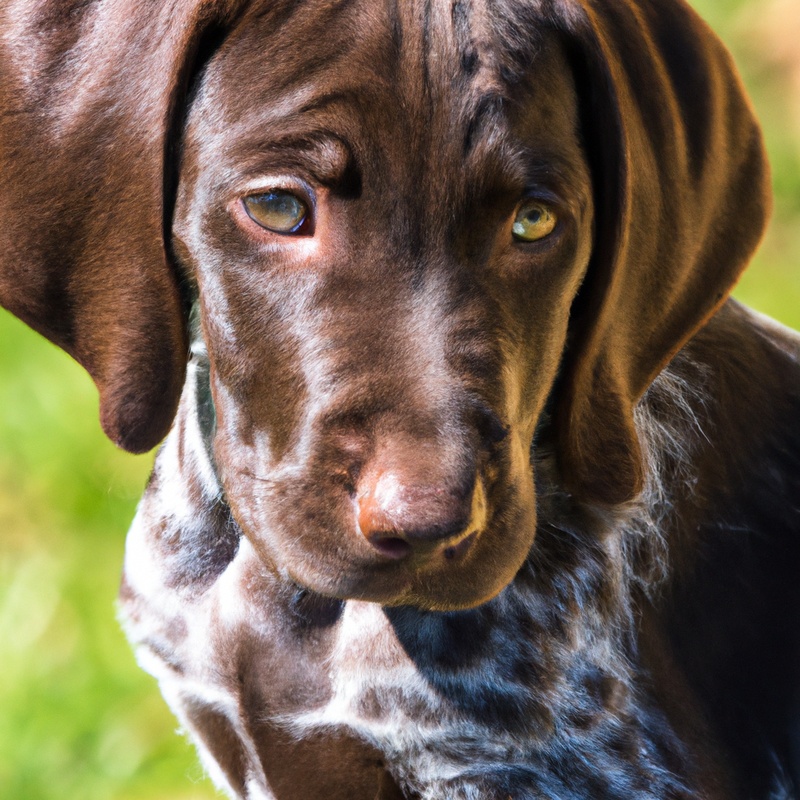
Common ear infections in German Shorthaired Pointers caused by swimming
Common ear infections in German Shorthaired Pointers can be caused by swimming. When water gets trapped in their ears, it creates a moist environment that is prone to bacterial and fungal growth.
This can lead to painful and uncomfortable ear infections.
It’s important to be aware of the signs of an ear infection, such as redness, swelling, discharge, and excessive scratching or shaking of the head. To prevent these infections, make sure to keep your German Shorthaired Pointer’s ears dry after swimming.
Drying their ears thoroughly with a towel, using a vet-approved drying agent, or using ear-drying solutions can help minimize the risk of infections.
Steps to keep your German Shorthaired Pointer’s ears dry during swimming
To keep your German Shorthaired Pointer’s ears dry during swimming, here are some steps you can follow:
- Use ear protection: Before your dog goes into the water, consider using specialized ear protection designed for dogs. These can help keep water out of their ears and reduce the risk of infections.
- Drying the ears after swimming: After your dog is done swimming, gently dry their ears with a clean towel. Be sure to dry the ears thoroughly to remove any excess moisture.
- Regular ear cleaning: Regularly clean your dog’s ears using a veterinarian-recommended ear cleaning solution. This will help remove any dirt, debris, or buildup that can lead to infections.
- Monitor for signs of infection: Keep an eye out for signs of ear infection, such as redness, swelling, discharge, or a foul odor. If you notice any of these symptoms, it’s important to consult your veterinarian for proper treatment.
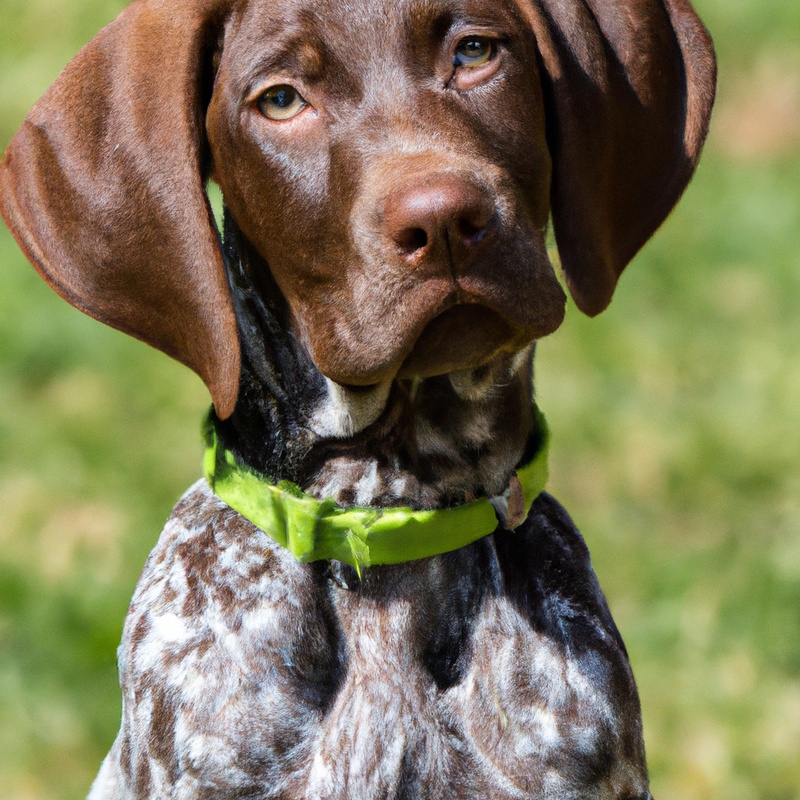
Understanding the anatomy of a German Shorthaired Pointer’s ears
The structure of a German Shorthaired Pointer’s ear canal
The structure of a German Shorthaired Pointer’s ear canal is unique and plays a crucial role in their hearing abilities. First and foremost, their ear canals are long and vertical, which helps funnel soundwaves into their ears more effectively.
This design allows them to detect even the slightest sounds.
Additionally, their ear canals have a protective layer of hair and wax to prevent debris from entering and causing irritation or infection. This hair also helps to filter out foreign particles, keeping their ears clean.
The shape of their ear canal is also important.
German Shorthaired Pointers have a slightly curved canal, which helps to direct soundwaves towards their eardrum, further enhancing their ability to hear. Understanding the structure of their ear canal can help you take better care of your German Shorthaired Pointer’s ears and prevent any potential issues.
Regular cleaning and inspection of their ears can ensure that they stay healthy and free from infections.
How a German Shorthaired Pointer’s ear canal differs from other breeds
A German Shorthaired Pointer’s ear canal is different from that of other breeds in a few key ways. Firstly, their ear canals are longer and more open, allowing for better airflow.
This can make them more prone to moisture buildup and infections if not properly maintained.
Secondly, their ear canals have a more pronounced downward slope, which can make it easier for water to enter during activities like swimming. Thirdly, the shape of their outer ears, known as the pinna, tends to be larger and more open.
This can make it harder for the ear to naturally shed water and debris.
Understanding these differences is important when it comes to keeping your German Shorthaired Pointer’s ears dry and preventing infections.
The role of hair and wax in a German Shorthaired Pointer’s ears
The role of hair and wax in a German Shorthaired Pointer’s ears is to provide protection and maintain a healthy ear canal. The hair acts as a barrier, preventing dirt, debris, and insects from entering the ear.
It also helps to trap moisture and prevent it from reaching the sensitive inner ear.
Wax, on the other hand, helps to lubricate the ear canal and prevent dryness and itching. It also helps to trap any foreign particles and transport them out of the ear.
Both hair and wax play an important role in keeping your German Shorthaired Pointer’s ears clean and functioning properly.
The risks of allowing water to enter a German Shorthaired Pointer’s ears
Exposing your German Shorthaired Pointer to ear infections and inflammation
Exposing your German Shorthaired Pointer to ear infections and inflammation can cause discomfort and potential health issues for your furry friend. When water enters their ears during activities like swimming, it creates a damp environment that is perfect for bacteria and yeast to grow.
This can lead to painful ear infections and inflammation.
The long hanging ears of German Shorthaired Pointers make them particularly prone to these problems. Moisture trapped in the ears can also lead to a buildup of wax and debris, further increasing the risk of infection.
To protect your German Shorthaired Pointer’s ears, it’s important to take preventive measures.
One simple step is to make sure their ears are thoroughly dried after any water-related activities. Gently drying their ears with a clean towel or using a pet-specific ear drying solution can help remove moisture and prevent infection.
Regularly inspecting your German Shorthaired Pointer’s ears for any signs of redness, swelling, discharge, or an unpleasant odor is essential.
If you notice any abnormalities, it’s best to consult with a veterinarian who can provide appropriate treatment and advice on how to maintain your dog’s ear health. By being proactive and attentive to your German Shorthaired Pointer’s ear care, you can help minimize the risk of ear infections and keep your furry friend happy and healthy.
Potential long-term damage due to chronic moisture in the ears
Chronic moisture in your German Shorthaired Pointer’s ears can lead to some potential long-term damage. Firstly, it can create a breeding ground for bacteria and yeast, which can cause recurrent ear infections.
These infections can be painful and uncomfortable for your furry friend.
Secondly, excessive moisture can also lead to inflammation and irritation of the ear canal, making your GSP prone to chronic itching and scratching. Over time, this can damage the delicate tissues in the ear and result in thickening of the skin or even the formation of polyps.
By keeping your dog’s ears dry and taking preventative measures, you can help minimize the risk of these long-term issues.
Common ear infections in German Shorthaired Pointers caused by swimming
Otitis externa: The most common ear infection in German Shorthaired Pointers
Otitis externa is the most common ear infection found in German Shorthaired Pointers. This condition affects the external ear canal and can be quite uncomfortable for your furry friend.
It is usually caused by moisture, such as swimming, which creates a breeding ground for bacteria and yeast.
Regular cleaning and drying of your dog’s ears after swimming can help prevent this infection. Keeping their ears dry and avoiding excessive moisture will greatly reduce the chances of your German Shorthaired Pointer developing otitis externa.
Signs and symptoms of ear infections in German Shorthaired Pointers
Signs and symptoms of ear infections in German Shorthaired Pointers can vary, but here are some common indicators to look out for. First and foremost, pay attention if your GSP is shaking or tilting their head frequently.
They might exhibit signs of discomfort, like scratching or rubbing their ears excessively.
Another telltale sign is a foul odor coming from their ears. Look for redness, swelling, or discharge inside the ear canal as well.
If you notice any of these symptoms, it’s important to consult with your vet for a proper diagnosis and treatment.
Possible complications if ear infections are left untreated
If you leave your German Shorthaired Pointer’s ear infections untreated, it can lead to some serious complications. First and foremost, the infection can spread from the outer ear to the middle and inner ear, causing a more severe and painful condition called otitis media or otitis interna.
This can result in balance problems, hearing loss, and even facial paralysis.
Furthermore, untreated ear infections can lead to chronic inflammation and damage to the ear canal and surrounding tissues. This can result in scarring, narrowing of the ear canal, and a higher risk of future infections.
In some cases, the infection can even spread to nearby structures like the jaw or brain, leading to more severe health issues.
So, it’s important to seek prompt veterinary attention and follow their recommended treatment plan to avoid these potential complications. Taking care of your dog’s ear health is crucial for their overall well-being and happiness.
Steps to keep your German Shorthaired Pointer’s ears dry during swimming
Pre-swim preparation: Cleaning and drying the ears
Pre-swim preparation is key to keeping your German Shorthaired Pointer’s ears dry and preventing infections. One important step is cleaning and drying the ears.
First and foremost, gently clean your dog’s ears using a veterinarian-approved ear cleaner solution.
Use a clean cloth or cotton ball to wipe away any dirt or debris. It’s crucial to be gentle and avoid inserting anything deep into the ear canal.
After cleaning, make sure to thoroughly dry your dog’s ears.
Moisture left behind can lead to infections. Use a dry cloth or towel to carefully dry the outer ear and the ear flap.
You can also use a hairdryer on a low, cool setting to ensure complete dryness.
Just be sure to keep it at a safe distance from your dog’s ears.
Protecting the ears with specialized ear covers or cotton balls
Protecting your German Shorthaired Pointer’s ears during swimming is essential to prevent infections. One way to do this is by using specialized ear covers or cotton balls.
These options help to keep water out of the ears and reduce the risk of moisture causing ear infections.
Specialized ear covers are designed to fit comfortably over your dog’s ears, providing a barrier against water. Cotton balls can also be gently inserted into the ear canal to absorb any moisture.
Use whichever option works best for your dog and ensure a secure fit to effectively protect their ears.
Post-swim care: Drying and inspecting the ears
After your German Shorthaired Pointer has finished swimming, it’s important to take care of their ears to prevent infections. Here are some steps you can take for post-swim care:
- First and foremost, gently dry your dog’s ears using a clean towel or cloth. Gently wipe away any excess moisture to avoid leaving a damp environment where bacteria can thrive.
- Inspect the ears for any signs of redness, inflammation, or unusual discharge. Look for any foreign objects, such as debris or water trapped inside the ear canal. If you notice anything concerning, it’s best to consult your veterinarian.
- To further ensure dry ears and prevent infections, you can use a specially formulated ear drying solution. These solutions are designed to help evaporate excess moisture and maintain a healthy ear environment. Follow the product instructions and apply as directed.
- Lastly, it’s important to remember not to use cotton swabs or any sharp objects inside your dog’s ears. This can cause injury and potentially worsen any existing problems.
By incorporating these simple steps into your dog’s post-swim routine, you can help keep their ears dry and potentially prevent infections. Regular ear care is vital for the health and wellbeing of your German Shorthaired Pointer.
Consulting a veterinarian for additional preventive measures
If you want to take extra precautions to keep your German Shorthaired Pointer’s ears dry during swimming and prevent infections, it’s a good idea to consult a veterinarian. They can provide you with additional preventive measures tailored to your dog’s specific needs.
Veterinarians have the expertise and knowledge to suggest effective ear cleaning solutions, recommend ear drying products, and provide guidance on how to properly clean and dry your dog’s ears after swimming.
So, don’t hesitate to reach out to a veterinarian for professional advice when it comes to keeping your dog’s ears healthy and infection-free.
Final Verdict
It is crucial to keep your German Shorthaired Pointer’s ears dry during swimming to prevent infections and potential long-term damage. Understanding the unique anatomy of their ear canals and the risks associated with moisture is essential.
By following simple steps such as cleaning and drying the ears pre and post-swim, using ear covers or cotton balls for protection, and seeking professional advice, you can ensure your dog’s ear health and overall well-being.
Trust the information provided, as it is based on expert knowledge and experience. Take action now to safeguard your beloved German Shorthaired Pointer’s ears and enjoy worry-free swimming experiences together.

